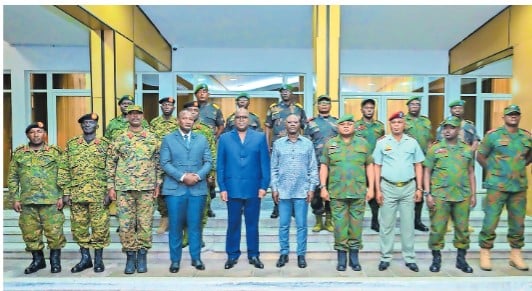Prime
Decentralise Covid-19 emergency response

Author: Joseph Ochieno.
What you need to know:
- ‘‘In so doing, you will shorten the distance for most travel, provide space, improve quality of services and save a few lives”
I was a guest on Civic Space TV (a must watch) a few days ago to discuss the government’s handling of the second wave of Covid-19. While we all recognise that despite the initial whippings of vulnerable citizens and, although it is recorded that for every one life saved through the enforcements of SOPs, four lives were lost indirectly, it is agreed that the first wave was relatively better handled except, of course, our continued cries and demand for accountability of how the monies and other resources raised have been used.
And, rightly asked, considering the manner in which the second wave seems to find us more unprepared than a couple engaged in opposite dreams.
Then came the second wave and, some must-share-startling revelations: That bars in certain places remained opened and were effectively supervised by the police. That public (not really public – private taxis and buses) too, contributed to resurgence as SOPs were not effectively enforced and, in some cases, passengers got off before roadblocks and, merely walked forward. That places of worship too made their contributions by (some) disregarding or, not effectively following SOPs process. And true, even during this second wave, a friend from Rukungiri District suggests some business premises are, like business as usual.
But then I got this: That while Mr Museveni boasts, many health workers (some volunteers) from the first wave have not been paid! That many did operate and continue to operate today, without sufficient personal protection equipment (PPE). Then I was reminded that Uganda also has over 1,500 doctors unemployed. That is, of course, disregarding the true figure, including those fantastic friends who have had to get into other businesses and, even more, who have had to seek employment abroad. I shall discuss them another time. That Uganda enjoys one doctor for every 25,000 patients; the global recommended is 1:1,000. Then I got a little angry but held; but still, that more than 15 doctors have died within the last three weeks – that is, in the second wave alone.
Then I was reminded that last year – for the first time in the memory of my colleague – Mr Museveni promised, or did he instruct the ministry of Finance to increase salaries of these key workers. It was before last year’s Budget. Two Budgets are now passed. Nothing has changed.
Then I was reminded about fast-tracking corruption, instead of fast-tracking essential procurement and provisions of services related to the pandemic. Then I remembered Covid-19 money and campaigns. Then I remembered mafia. And then I remembered the new NRA/M Cabinet and the recycling of individuals who were officially found as thieves – yes, they stole money meant for HIV/Aids, malaria and those others. Serious stuff. Yet Covid-19 is even more serious but already, thefts have occurred; vaccines, medicine, equipment, procurement and now we have Nasser Road ‘vaccines’. It is official, corruption at the heart of a tired regime; corruption at a time of a national crisis, a global pandemic about which we have no idea what is coming yet, corruption continues – in blood. It is criminal.
But it is not too late. Mr Museveni can wake up from his national fatigue and change something small. Instead of confining Covid-19 treatments to regional referral hospitals, decentralise the manageable aspects of these services to selected district hospitals with capacity and infrastructure to help ease the pressure on the limited regional facilities and in so doing, you will shorten the distance for most travel, provide space, improve quality of services, save a few lives and at least, provide some basic confidence from most citizens that they can go to hospitals and get out alive or, might attend these facilities and not instead return with Covid-19 after all, not many can afford to pay hospital bills of Shs50m simply to retrieve their dead. It is possible, simply try and believe in better.
The writer is a pan-Afrikanist and former columnist with New African Magazine [email protected]




